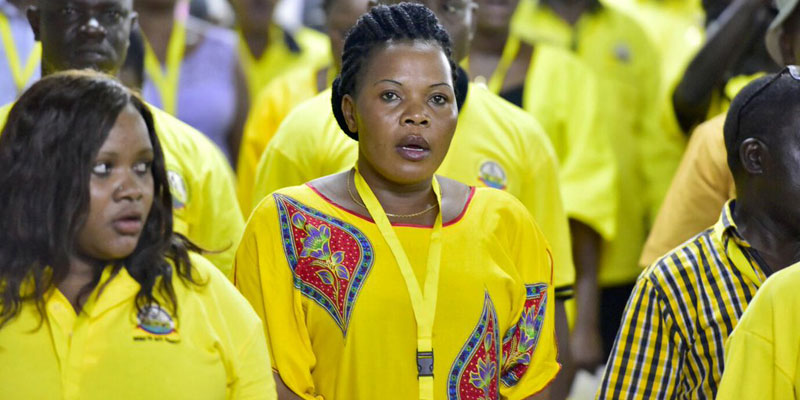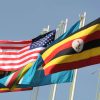Columnists
What I told incoming MPs
The current economic model and structure is a threat not only to the NRM government, but also to the stability of the country!
A fortnight ago I got the opportunity of addressing the incoming Members of Parliament belonging to the ruling National Resistance Movement (NRM) party on what I love to do most – analysis of Uganda’s economy. I presented a paper, entitled, “Performance of Uganda’s Economy: Progress, Opportunities, Challenges and the Way Forward,” as an independent critique to the official positions presented by Keith Muhakanizi, the Permanent Secretary of the Ministry of Finance, Planning and Economic Development (MFPED).
Although I made an attempt to analyse the macroeconomic aspects of the economy, my main focus was on the microeconomic realities of Uganda’s economy, something that the authorities at MFPED, and at Bank of Uganda rarely focus on in their analysis of the economy.
My overall objective was to bring to the attention of our leaders the fact that although the economy has for the last three decades been growing [at least if you go by the growth in GDP from about $4 billion (Shs.13 trillion) in 1986 to over $27 billion (Shs.90 trillion), the incomes of a large majority of Ugandans had remained stagnant.
My intention was to show the MPs and other senior leaders that as long as a larger section of Ugandans was not feeling the reported growth in their pockets, the so called steady progress would remain mere rhetoric to them.
I emphasised the fact that getting the economy work for a big majority of Ugandans is the main unfinished business for the NRM government. Economic inclusion is all Ugandans are yearning for. And economic inclusion is a policy issue. It’s a choice that the policymakers, particularly the legislators, may decide to pursue or ignore. I told them that currently they had chosen to build a rich economy with poor people.
Here are the real challenges
True, in the past three decades Uganda’s economy has undergone fundamental reforms. The economy has expanded nearly seven times since 1986. However, this growth has not only remained jobless, it has not helped to raise household incomes of a big majority of Ugandans.
I outlined for the reasons behind this paradox, factors which I have written about before in these pages, including: the rising income inequality among Ugandans, and the high population growth rate. Others include that fact that a large proportion of Uganda’s GDP is being produced by foreigners who dominate the thriving businesses in Uganda and particularly those in the fastest growing sectors such as telecommunications, banking, large scale manufacturing, wholesale and retail trade etc are foreign owned, while Ugandans are concentrated mainly in small, informal businesses and in non-tradable activities mainly construction of shopping malls, apartments, buying land, etc. Since these cannot be exported, their multiplier effect is low.
I also brought to the attention of the legislators the large proportion of our GDP we spend on imports (33%), meaning that our incomes and jobs are donated to the citizens of the countries where we import from — China, India, Kenya, South Africa, South Korea, Malaysia etc. That is why the incomes of the Koreans and Malaysians have grown geometrically in the last three decades while those of Ugandans have remained stagnant.
I turned to the key challenges such as low agricultural productivity, the high post-harvest losses the farmers face, due to poor storage facilities, which have led to low growth of the agricultural sector.
I summarised Uganda’s main economic challenges today as four of them: (1) How to make agriculture a high value sector, raise agricultural productivity, reduce subsistence production and increase household incomes; (2) How to speed up the movement of people out of agriculture into more productive and high value sectors such as industry and services.
Others are (3) How to facilitate structural transformation of the economy to create more and decent jobs for the thousands of young people that continue to graduate from higher institutions of learning ; and (4) How to improve export performance to raise foreign exchange earnings and boost the value of the shilling.
Other challenges that need to be addressed include: reforming land laws to provide more security of tenure, the need to improve access to finance, as well as improvement of the level of skills of the labour force particularly technical skills.
What need to be done?
I did as well suggest for our leaders what can be done to address the multitudes of challenges identified. I told them that for Uganda to transform her economy and industrialise, it will need to build first a strong, well-functioning agricultural sector. The country will have to find, first, ways of increasing the productivity of the peasant smallholder farmer.
To modernise agriculture we need to put in place incentives that would encourage smallholder farmers to increase their productivity. The question is how do we achieve this? I told the NRM MPs that the way I have been doing it – mobilising peasants through radios, newspapers, public rallies, and seminars to modernise agriculture will work. I told them that they need to identify the diseases that are failing the people of Uganda to commercialise agriculture and boost their incomes.
I identified these “diseases” for them including, the low and unstable farm-gate prices for agricultural produce, the high post-harvest losses, and the high risk to investors in the sector. These factors have made agriculture in Uganda an unprofitable activity, particularly for the smallholder farmer.
Thus there has been low incentive for peasants to work their gardens more productively. There is no incentive to adopt modern technologies such as hybrid seeds, fertilizers, chemicals and modern machinery that would boost productivity. There is also no incentive for the youth to engage in agriculture. In its current form, agriculture is “dirty”, non-lucrative and thus unattractive to the youth who are considerably the energetic Ugandans.
So how do we deal with problem? How do we raise and stabilize farm-gate prices? How do we reduce post-harvest losses? How do we reduce risk for smallholder investors in the agricultural sector? We need to implement what we shall refer to as “second-best” measures. These are the measures that may work in a liberal and free market environment such as Uganda’s.
I proposed to the MPs that the best second-best way of providing incentives to smallholder farmers to boost production is building rural-based agro-processing industrial centres (RICs). The RICs may be built at district level or slightly upper level across the country. Each of the centres must be well equipped with modern facilities for drying and cleaning, storage, silos, cold chain facilities, bulking, modern value addition equipment, transportation, etc.
Wasting a generation away
If this is done, a smallholder farmer, producing two sacks of grain or fruits, will be able to evacuate his/her produce to the centre. If the prevailing price does not meet the expectation of the farmer, they may opt to pay for cleaning and storage of their produce at the centre in speculation for a better price.
The RICs will help to add value to farmers’ produce, reduce waste (post-harvest losses), and hence reduce uncertainty in agriculture. It will also help to stabilize farm-gate prices. The farmers’ bargaining power will be boosted by the centre. This will enable them overcome the “Tyranny of middlemen”.
It is these incentives that will prompt farmers to adopt new and modern technologies such as the high yielding varieties or what in Asia they call the “miracle seeds”, use of modern machines such as tractors, planters, combine harvesters, irrigation equipment, fertilizer and pesticides etc.
I asked the MPs, as senior leaders of the party and government in power, to take the front seat in agitation for new revolutionary ideas that will turn around the economy. The current economic model Uganda is following does not generate hope. Hard work is not paying off. Economic growth is not creating more and better jobs. People’s confidence in the prevailing economic system has declined sharply. This is a threat not only to the NRM government, but also to the stability of the country.
I also cautioned the MPs to forget about the oil we discovered ten years ago and first concentrate on developing the agricultural sector, cottage industries and assembly plants. They should also create incentives to leverage the information and computer technology (ICT) as well as tourism in order to create more decent and high-paying jobs for the thousands of smart young people that are graduating every year.
We are busy wasting a generation away by failing to create employment, and resort to tormenting fresh graduates with creation of own SMEs as if those who are asking them to do so jumped from school right into business!
Comments














